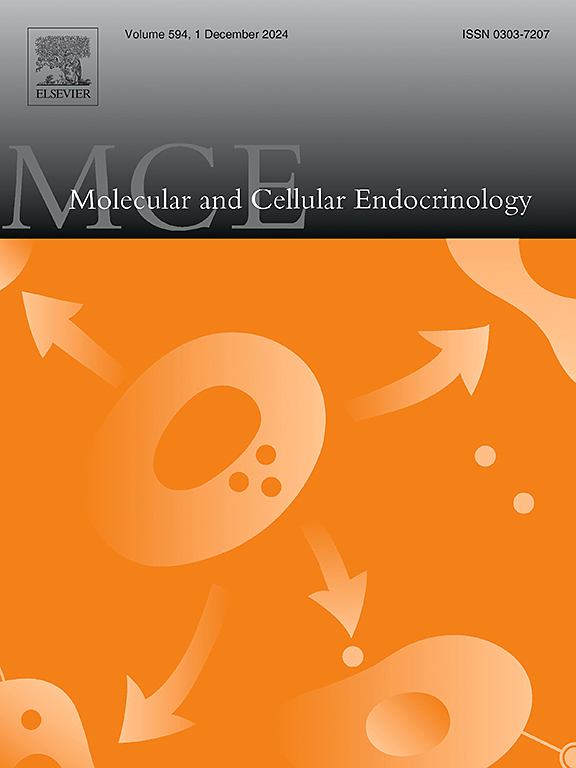Enteroendocrine cell differentiation: Implications for human disease
IF 3.6
3区 医学
Q2 CELL BIOLOGY
引用次数: 0
Abstract
Enteroendocrine cells are the most abundant hormone producing cells in humans. Though they make up less than 1 % of the gastrointestinal epithelium, these cells have a large physiological impact through the secretion of hormones that act both locally and systemically to regulate intestinal function and whole-body metabolism, among other functions. The differentiation of enteroendocrine cells from intestinal stem cells is complex, involving not only lineage, but hormonal specification. This review highlights the specific signaling pathways and transcription factors that regulate enteroendocrine cell differentiation and hormone production, integrating newer findings into our growing understanding of this process. Further, it also describes how enteroendocrine cells and their differentiation are involved and altered in human health and disease: specifically aging, inflammatory bowel disease, obesity, and diabetes mellitus. Finally, we focus on how enteroendocrine cells can be targeted to produce insulin, a growing field with significant implications. Understanding what drives enteroendocrine differentiation, both molecularly and physiologically, will provide important insights into how these cells can serve as future therapeutic targets.
肠内分泌细胞分化:对人类疾病的影响
肠内分泌细胞是人类体内最丰富的激素产生细胞。虽然它们占胃肠道上皮的比例不到1%,但这些细胞通过分泌局部和全身作用的激素来调节肠道功能和全身代谢等功能,具有很大的生理影响。肠内分泌细胞与肠干细胞的分化是一个复杂的过程,不仅涉及谱系,而且涉及激素的调节。这篇综述强调了调节肠内分泌细胞分化和激素产生的特定信号通路和转录因子,并将最新发现整合到我们对这一过程日益增长的理解中。此外,它还描述了肠内分泌细胞及其分化如何参与和改变人类健康和疾病:特别是衰老,炎症性肠病,肥胖和糖尿病。最后,我们关注肠内分泌细胞如何靶向产生胰岛素,这是一个具有重要意义的新兴领域。了解驱动肠内分泌分化的分子和生理因素,将为这些细胞如何作为未来的治疗靶点提供重要的见解。
本文章由计算机程序翻译,如有差异,请以英文原文为准。
求助全文
约1分钟内获得全文
求助全文
来源期刊

Molecular and Cellular Endocrinology
医学-内分泌学与代谢
CiteScore
9.00
自引率
2.40%
发文量
174
审稿时长
42 days
期刊介绍:
Molecular and Cellular Endocrinology was established in 1974 to meet the demand for integrated publication on all aspects related to the genetic and biochemical effects, synthesis and secretions of extracellular signals (hormones, neurotransmitters, etc.) and to the understanding of cellular regulatory mechanisms involved in hormonal control.
 求助内容:
求助内容: 应助结果提醒方式:
应助结果提醒方式:


